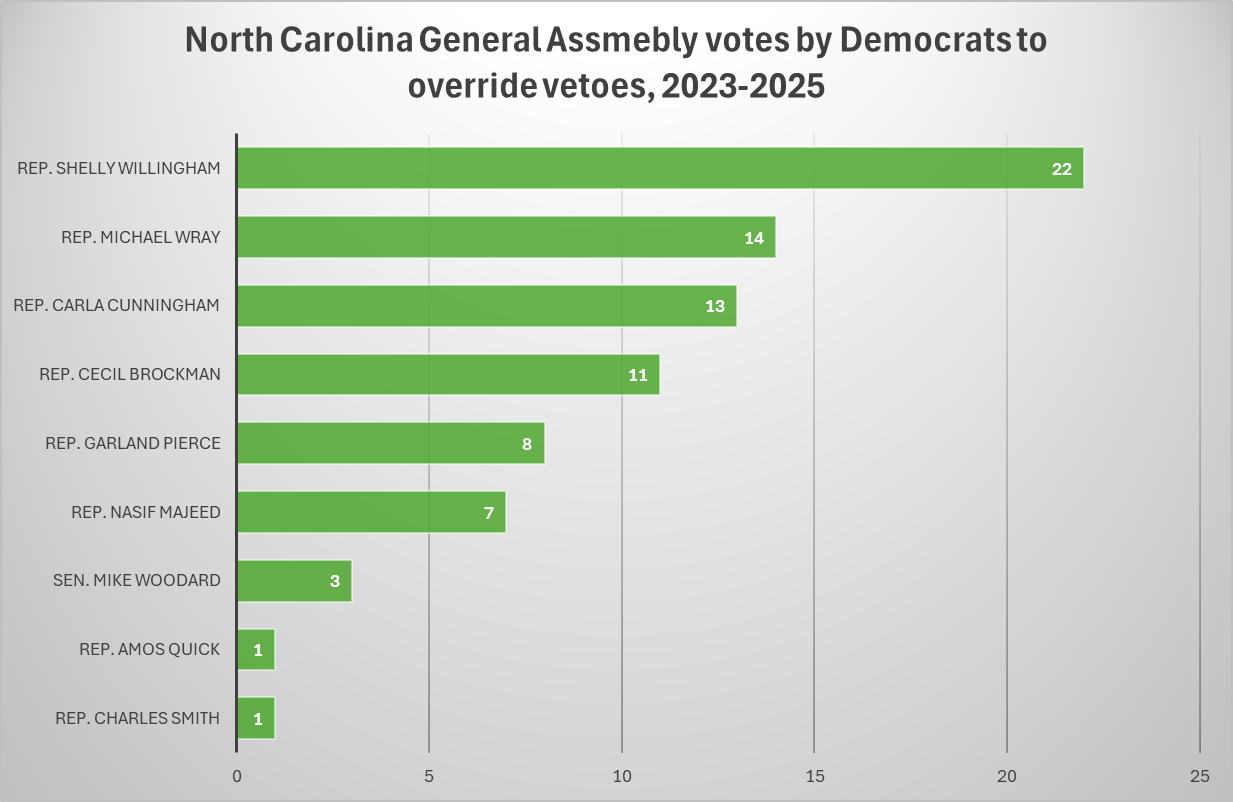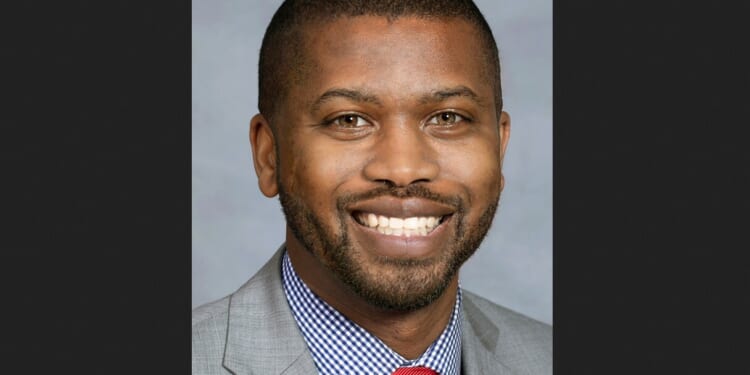Following Rep. Cecil Brockman’s arrest for crimes related to his alleged “statutory sex offenses” with a 15-year-old, leaders from both major parties have called for his immediate resignation.
The North Carolina House Democrats wrote (on a page that will, no doubt, soon be erased) that Brockman, “Whether he’s working on bipartisan solutions or standing firm in his principles, he continues to be a dedicated public servant focused on delivering results for the people of Guilford County.”
Brockman’s reputation for bipartisanship stems, at least in part, from the number of times he has voted with Republicans. That has earned him the ire of his Democratic colleagues and a primary challenge in 2024. Brockman, the only openly bisexual member of the General Assembly (he announced it in 2016), won that primary by only 85 votes.
Despite that, Brockman is not the only Democrat who occasionally crosses the aisle to vote with Republicans. By one important measure, he is not even the most prolific aisle-crosser.
Which Democrats vote with Republicans on veto overrides?
Veto overrides are among the most contentious votes in the legislative process. While individual legislators may support a bill they believe is in the best interest of their constituents, even if most of their party colleagues oppose it, they receive extra pressure to toe the party line once the governor vetoes it.
For example, three Democratic senators voted for a 2021 bill to reopen public schools. After Gov. Roy Cooper vetoed it, one of those senators (a co-sponsor of the bill) was absent from the override vote, and another senator, Paul Lowe, reversed himself and voted to sustain the veto. When asked why, he said, “[Gov. Cooper] asked. I am a Democrat. He’s the governor, and a Democratic governor.”
(It is worth noting that Brockman’s absence does not give Republicans the power to override vetoes without any Democratic support. Assuming that all representatives are present and toe the party line, an override vote of 71 to 48 equals 59.7 percent, just short of the three-fifths required to override.)
So, voting to sustain vetoes can be one of the most difficult forms of bipartisanship. Despite that, a review of veto override votes found that nine Democrats voted to override vetoes a collective total of 80 times on 27 bills from 2023 through 2025.

The nine Democrats who voted to override vetoes at least once are disproportionately Black (6/9) and male (8/9). More represent districts in urban counties (five) than rural (three) or suburban/regional city counties (one), using categories from the North Carolina Rural Center.
The racial disparity is even more extreme when considering individual votes. Of the 80 Democratic veto override votes by Democrats from 2023 to 2025, 62 were cast by Black legislators (77.5%).
Moderate Democrats are under attack from the party’s left-wing
The proportion of Black legislators voting to override vetoes may have been inflated by the fact that two of the White legislators on the list, Rep. Michael Wray and Sen. Mike Woodard, lost their primaries in 2024. Neither of their replacements has voted to override a veto so far in 2025.
Those defeats were part of a campaign orchestrated by the North Carolina Young Democrats and others against several Democratic incumbents they believed were insufficiently loyal to the party. While Brockman barely survived his primary, representatives Carla Cunningham and Shelly Willingham easily beat back their challengers.
The far left wing of the party appears ready to have another go at Rep. Cunningham in 2026. Other surviving members on the list of moderate Democrats could face primary challenges in 2026 as well.











